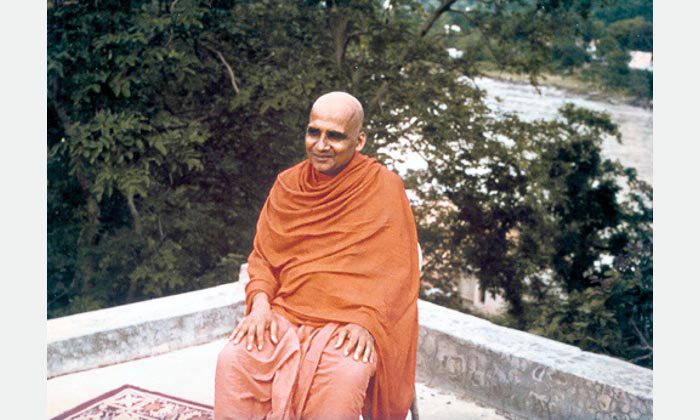The Bhagavadgita – A Synthesis of Thought and Action-6. Swami Krishnananda.
Sunday 01, Sep 2024, 06:50.
Article
Scriptures
The Bhagavadgita – A Synthesis of Thought and Action-6.
Swami Krishnananda
(Spoken on Gita Jayanti in 1973)
=======================================================================================
Now, what is duty? Duty is the obligation that an individual owes to the world outside, and we cannot know what our duty is unless we know what the world is because, as I mentioned in this simple definition of duty, it is an obligation that we owe to the world as a whole. But how do we know what is our obligation to the world if we do not know what the world is? The world is not made up of mountains and rivers. It is not a conglomeration of earth, water, fire, air and ether, sun, moon, stars. The world is a fabric of forces. It is a pattern of energies which work everywhere uniformly both in organic and inorganic substances. We are told today that the universe is made up of energy. It is not made up of substances or things. The world is not made up of things of our taste. The ultimate stuff of the world is something different from the tasty, delightful objects that the senses behold in the structure of space and time. The world is different from what the senses perceive, and therefore we cannot understand the world by merely opening our eyes and seeing it. The five senses of perception cannot give us an understanding of what the world is made of.
Arjuna looked at the world with the five senses. This is not Sankhya, as the Bhagavadgita tells us. Arjuna, you have to look upon the world with the Sankhya knowledge. The Second Chapter of the Bhagavadgita is an exposition of the Sankhya understanding that is to become the basis of our attitude towards the world. And without this Sankhya, yoga will not come. Yoga is the practical application of Sankhya or, in the terminology of the Bhagavadgita, Sankhya is knowledge, yoga is action. So unless you have a knowledge of the nature of the world, you cannot act in the world properly. You will make mistakes in every one of your approaches. Now, this Sankhya which the Bhagavadgita speaks of is the knowledge of the world, which is going to be the foundation of the methodology of action in the world in every field, in every occasion.
Arjuna's standpoint of knowledge was erroneous because it was sensory, empirical, externalised, personalistic and, therefore, false; so he was in sorrow, whereas Sri Krishna expected Arjuna to rise to the level of the Sankhya, which means to say the uniformity of knowledge which is at the basis of the structure of the world. We are under the impression that the world is outside us; therefore, we have a peculiar attitude towards things which is, again, to come down to the level of our own perception, the attitude of pleasure and pain in respect of things.
“This is wonderful.” “This is very nice.” “This is no good.” We pass such remarks on persons and things on the basis of a sensory evaluation of them. But this is an incorrect attitude. The world is not made up of good things or bad things, pleasurable things or miserable things, our things or other things. It is made up of things in general. It is not our things. They are there even if we are not there. We too belong to it. It is very difficult to conceive what the world is. When the world starts thinking, it is not you or I who thinks. This is Sankhya – the nature of the world in its essential being, quite different from what it appears to us in our sensory perception.
Continued




.jpg)





Comments
Post a Comment